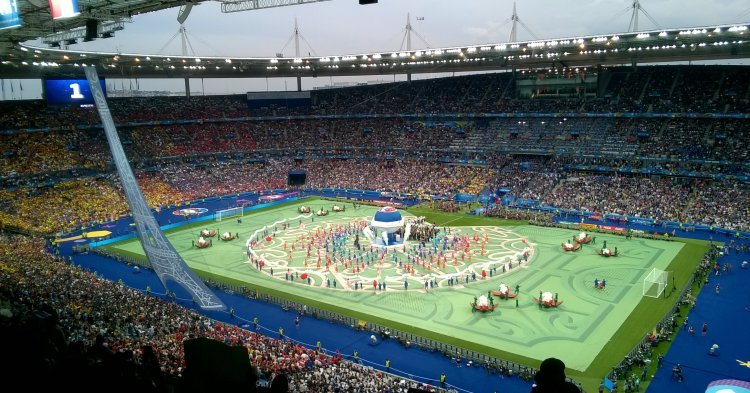Talking about serious business, EU heads of state and government are gathering during those two days to discuss a series of topics that are on the European agenda. Among the discussed issues are migration; security and defence; jobs, growth and competitiveness; innovation and digital Europe; long-term EU budget (MFF) and external relations. In appearance, it seems like sport is absent of the issues to be addressed by the European leaders. However, we think it is very much present within the topics that are on the agenda.
While the European Heads of State and Government try to reach a deal to manage migration into Europe, thousands of migrants continue to arrive on the soil of the old continent, looking for a better place to live. Beyond these issues is the integration of those migrants into our societies. They are facing many hurdles in the process of being part of a new environment, starting with the language barrier. With this in mind, sport has a major role to play as a universal language that can connect people and help the integration of migrants.
The European Commission sees the potential of sport as a tool for social inclusion and supports European pilot projects that are implemented in order to contribute to the integration of refugees through sports. Through the Erasmus+ sport programme, the Commission supports initiatives going from grassroots projects to European-wide networks. Sport and Citizenship has dedicated a lot of importance to that topic by writing articles [1] and organising workshops about this issue. [2]
It is often said that sport is the world’s most important triviality, but we think it is much more than that. Major international sports events, like the World Cup, are an economic opportunity for the host country to invest in the sport sector, which is an essential economic factor for the EU. Recent studies show that the sport sector represents 2% of the European Union’s GDP. [3] It employs 7.3 million people, which represents 3.5% of the total EU employment. The share of the sport sector in the EU is comparable to agriculture, forestry and fisheries combined. However, the impact of sport in our economies is often underestimated. It has strong links with other areas of production like tourism, technology, health, buildings and infrastructure, contributing to the development of those sectors.
The European Commission has recently drafted a proposal for the 2021-2027 Multiannual Financial Framework (MFF). The Erasmus+ programme budget will be doubled to 30 billion euros. The proposed budget for the Sport Chapter amounts to 550 million euros over 7 years. [4] This is the biggest increase for any programme of the EU budget. It shows the willingness of the EU to boost its investment in education, training, sport and youth.
The European Council should follow in the footsteps of the Commission and emphasise the importance of sport. For too long, it hasn’t been considered as a serious topic. We can observe the growing consideration that sport is getting from the European institutions, it is now time to consolidate it. In this respect, the 2018 FIFA World Cup is a great opportunity for the European heads of state and government to reconsider the place of sport on the European agenda. We can only hope that they will seize the moment and take advantage of the start of the knockout phase of the 2018 World Cup to consider sport not only as the world’s most important triviality but as very serious business.


Follow the comments: |
|
